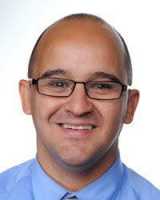Author Interviews, Sexual Health, Urology / 07.05.2024
AUA24 Penile Girth Enhancement: Study Evaluates Safety of Novel Hyaluronic Acid Filler Injections
MedicalResearch.com Interview with:
 Dr. Amy Pearlman MD
GenitoUrinary Surgeon and
Sexual Medicine Specialist
Board-Certified in Urology
MedicalResearch.com: What is the background for this study?
Response: There is significant controversy within urology (and in mainstream conversation) regarding penile enhancement. Our clinical experience with the PhalloFill protocol over the last 4 years has yielded great clinical and safety results. The purpose of our research is to study our outcomes in a more scientific fashion and, as a result, to be able to use this information to help educate potential patients, current patients, interested folks in the community, and other healthcare providers.
(more…)
Dr. Amy Pearlman MD
GenitoUrinary Surgeon and
Sexual Medicine Specialist
Board-Certified in Urology
MedicalResearch.com: What is the background for this study?
Response: There is significant controversy within urology (and in mainstream conversation) regarding penile enhancement. Our clinical experience with the PhalloFill protocol over the last 4 years has yielded great clinical and safety results. The purpose of our research is to study our outcomes in a more scientific fashion and, as a result, to be able to use this information to help educate potential patients, current patients, interested folks in the community, and other healthcare providers.
(more…)
 Dr. Amy Pearlman MD
GenitoUrinary Surgeon and
Sexual Medicine Specialist
Board-Certified in Urology
MedicalResearch.com: What is the background for this study?
Response: There is significant controversy within urology (and in mainstream conversation) regarding penile enhancement. Our clinical experience with the PhalloFill protocol over the last 4 years has yielded great clinical and safety results. The purpose of our research is to study our outcomes in a more scientific fashion and, as a result, to be able to use this information to help educate potential patients, current patients, interested folks in the community, and other healthcare providers.
(more…)
Dr. Amy Pearlman MD
GenitoUrinary Surgeon and
Sexual Medicine Specialist
Board-Certified in Urology
MedicalResearch.com: What is the background for this study?
Response: There is significant controversy within urology (and in mainstream conversation) regarding penile enhancement. Our clinical experience with the PhalloFill protocol over the last 4 years has yielded great clinical and safety results. The purpose of our research is to study our outcomes in a more scientific fashion and, as a result, to be able to use this information to help educate potential patients, current patients, interested folks in the community, and other healthcare providers.
(more…)



